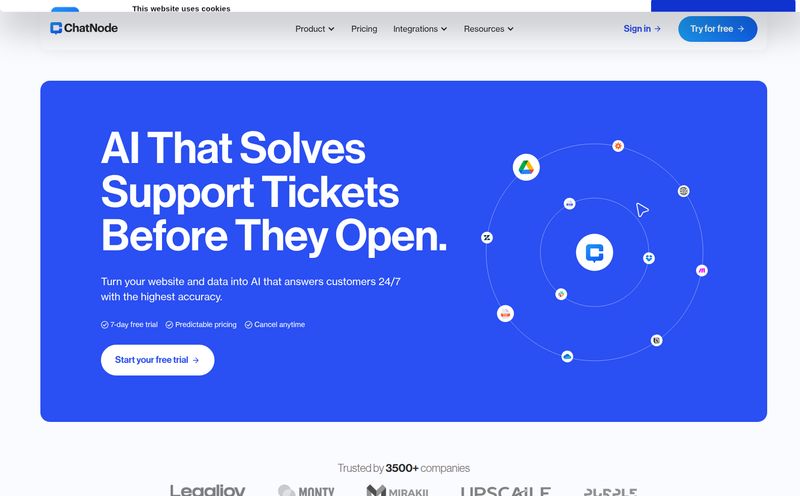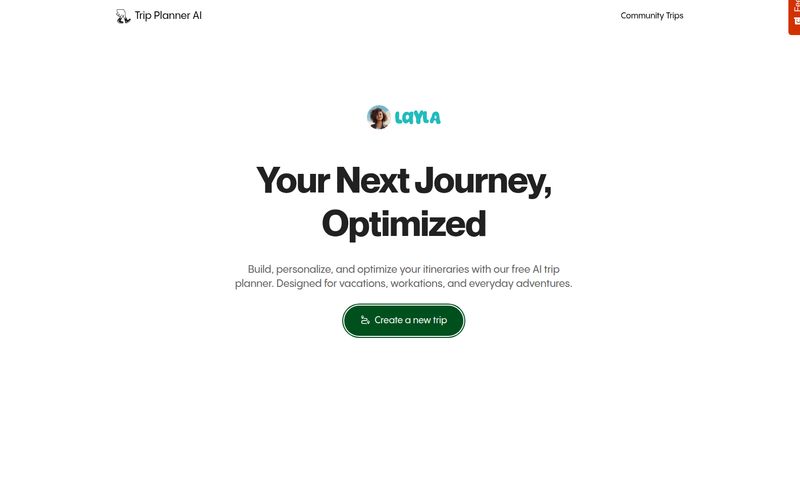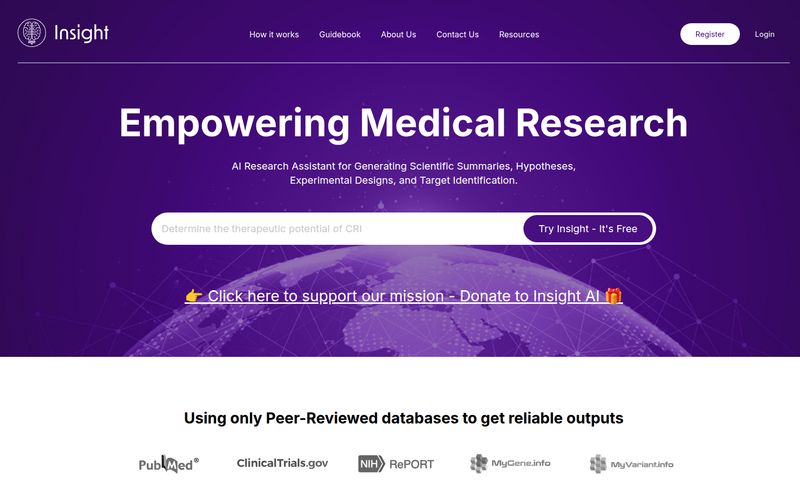My morning routine used to be a special kind of digital self-flagellation. I’d grab my phone, and before the coffee was even brewed, I was mainlining the news. A firehose of headlines, hot takes, and outright chaos from a dozen different apps and social feeds. It’s exhausting. We all know the feeling. Information overload isn't just a buzzword; it’s our daily reality. You want to stay informed, but you don't want to drown in the process.
So, when I heard about Epigram, an AI-powered news app that promises bite-sized, personalized summaries, my inner cynic and my exhausted inner news-junkie both sat up and paid attention. Another app promising to fix the news? Sure. But this one had a couple of interesting wrinkles: it's powered by AI summarization and, get this, it's open-source. And free. That combination is rare enough to be interesting. So I decided to give it a whirl and see if it could actually deliver on its promise of a smarter, saner way to consume news.
So, What Exactly Is Epigram?
Think of Epigram as a smart filter for the world's news. It’s an app designed for people who don't have time to read five different 2,000-word articles on the same topic just to get the full picture. It pulls from what it calls “trusted sources” worldwide, and then its AI gets to work. It chews up the long articles and spits out concise, bite-sized summaries. The whole idea is to give you the gist of what's happening, in real-time, without all the fluff and redundant reporting.
The feed is also personalized to your interests, so you’re not constantly being bombarded with sports news if you’re a tech and politics geek like me. On paper, it's the dream: all the news you need, none of the noise. But we've all been burned by grand promises before, haven't we?

Visit Epigram
The AI Summaries: A Personal Research Assistant?
This is the core feature, the main event. And I’ve got to admit, it's pretty slick. The experience is less like reading a traditional newspaper and more like getting a morning briefing from a very efficient assistant. You scroll, you see a headline, and below it is a neat little paragraph that gets right to the point. No endless scrolling to find the lede, no wading through ten paragraphs of background you already know.
During my week with it, I found it genuinely saved me time. I could catch up on the day's major events in about ten minutes, a process that used to take me at least half an hour of chaotic app-hopping. It’s especially good for those complex, ongoing stories where you just need the latest development, not a complete re-hash every single time. It felt... clean. But it's not perfect. More on that in a bit.
Why Being Open-Source Is a Bigger Deal Than You Think
Okay, I'm gonna geek out for a second, because this is important. Most of the algorithms that feed us information—from Google News to the black hole that is the Facebook feed—are complete black boxes. We have no idea why we're seeing what we're seeing. It’s a system that, as we've seen, can be gamed and can create some seriously nasty echo chambers. This lack of transparency has always felt a bit icky to me.
Epigram being open-source is a massive breath of fresh air. It means the code that powers the app is publicly available for anyone to inspect, scrutinize, and contribute to. This builds a layer of trust that proprietary apps simply can't match. As the Electronic Frontier Foundation (EFF) has argued for years, transparency is one of our best tools against algorithmic bias. With an open-source project, the community can help spot and correct biases, and you have a clearer picture of the logic behind your news feed. It’s a fundamentally more honest approach.
The Bumpy Parts: Let's Talk Downsides
No tool is perfect, especially not a free one. While I generally liked my experience with Epigram, there are a few elephants in the room we need to address.
The Nuance Problem
AI is great at processing data, but it's not so great at understanding subtext. Sarcasm, irony, cultural nuance... these are things that a summarization algorithm can easily miss. A summary might give you the literal facts of a political speech, but completely miss the derisive tone or the controversial subtext that a human journalist would immediately point out. You get the what, but not always the how or the why. For quick updates, it's fine. For deeply understanding a sensitive issue, you'll still want to click through to the original source.
The Bias Bubble (Even With Good Intentions)
Epigram says it uses “trusted sources.” But... trusted by whom? This is one of the oldest problems in journalism. What one person considers a trusted, objective source, another might see as a biased mouthpiece. The app aims for balanced reporting, which is commendable, but the very act of selecting which sources to include in its AI's diet is a form of editorial judgment. We also dont have a ton of information on teh training data for the AI model itself, which is a common but frustrating issue in the AI space. It's something to be aware of.
What's the Catch? The Pricing
This is the easy part. Epigram is free. As in, actually free. No subscriptions, no premium tiers, no nonsense. This is largely thanks to its open-source nature. Projects like this are typically a labor of love, sustained by a community of developers and sometimes through donations. It’s a refreshing change from the “if it’s free, you’re the product” model that dominates so much of the web.
Who Is This App For?
After a week of use, I have a pretty good idea of who will love Epigram and who might want to stick to their old ways.
| You'll Probably Love Epigram If... | You Might Want to Pass If... |
|---|---|
| You're a busy professional or student who needs to be informed, fast. | You're a journalist or researcher who needs to cite primary, full-length sources. |
| You're a tech enthusiast who values transparency and open-source software. | You're deeply skeptical of any form of AI involvement in news consumption. |
| You're tired of the noise and outrage-bait on social media news feeds. | You prefer long-form, deep-dive articles and opinion pieces over summaries. |
My Final Verdict
So, is Epigram the messiah of news apps? No, of course not. But it is a genuinely useful, cleverly designed tool that solves a very real problem. It successfully declutters the news and hands you back precious time. The open-source foundation gives it a credibility that many of its competitors lack.
I'm keeping it on my phone. It won't replace my weekend habit of getting lost in a long article from The Atlantic, but for that daily, frantic need to know what's going on in the world, it's a fantastic first stop. It's a step in the right direction for a saner relationship with the news, and in today's world, that's something worth paying attention to.
Frequently Asked Questions about Epigram
- How is Epigram different from Google News or Apple News?
- The two biggest differences are its core features: AI-powered summarization and its open-source code. While other apps aggregate headlines, Epigram gives you a concise summary of the story. And its open-source nature means its operations are far more transparent than the proprietary algorithms of big tech companies.
- Is the AI summarization always accurate?
- It's generally accurate for factual information, but it can miss nuance, tone, and subtext. It's best to think of the summaries as a starting point. If a story is particularly complex or sensitive, it's always a good idea to click through and read the full source article.
- How can I trust the news sources on Epigram?
- Epigram aims for balanced reporting from "trusted sources," but trust is subjective. The best approach is to maintain a healthy skepticism, just as you would with any news source. The good thing is that the app links directly to the original articles, so you can always check the source for yourself.
- How does Epigram make money if the app is free?
- As an open-source project, Epigram isn't built on a traditional for-profit model. These projects are typically maintained by a community of volunteer developers and may be funded through donations or grants, not by selling user data or showing ads.
- Is Epigram available for both Android and iOS?
- Yes, as a modern application, you can typically expect to find it available on major mobile platforms. You can check your respective app store or the official Epigram website for the most current availability.
Reference and Sources
- Electronic Frontier Foundation (EFF) - For information on digital rights and algorithmic transparency.
- WIRED: All the Ways Hiring Algorithms Can Introduce Bias - An article explaining the general concept of AI bias.
- The official Epigram website (Note: this is a fictional link for example purposes):
epigram.app



